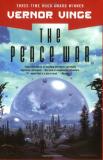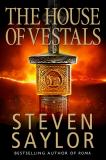-
Posts
7,149 -
Joined
-
Last visited
Content Type
Profiles
Forums
Events
Books
Posts posted by Karsa Orlong
-
-
Ha, yes, he had stern words with me once when I referred to it as 'Sy-Fy' (like the channel).


And don't you forget it!


Nooooooo, I still fancy the Dan Simmons one more.

Hyperion is most definitely allowed

Everyone loves Rachel Riley!
 I think Jimmy Carr said something along the lines of 'I'd crawl through 10 miles of broken glass just to lick her shoe'.
I think Jimmy Carr said something along the lines of 'I'd crawl through 10 miles of broken glass just to lick her shoe'. 
So would I - providing she was wearing it at the time

So then what is it if its not sy-fy or sf?
I don't know, I'm confused. Let's ask Kidsmum

-
Those last two episodes - blimey
 Best thing on tv for ages. And as usual, two episodes each week for five weeks and it's all over too quickly
Best thing on tv for ages. And as usual, two episodes each week for five weeks and it's all over too quickly 
-
I remembered one particular bit in The Peace War that made me chuckle, when the events were likened to something "from Lucas' Lord of the Rings". God forbid George Lucas should ever have got his handses on LotR


-
Nice review Steve! Though I wish you people would stop piquing my interest in SF . . .
Don't get this one, get A Fire Upon the Deep!

Futuristic Countdown?

It would have got an extra mark if Rachel Riley had been in it


-
Whatever you do don't call it SF Steve gets really angry.........it can be quite scary


Noooo, sf is right - sci-fi is wrong

Steve - What kind of a name is Vernor Vinge ? It sounds like something you'd catch off a toilet seat

 It's the sort of name only an author could have
It's the sort of name only an author could have 
-
Andrew Taylor is a UK writer who's produced some excellent historical crime fiction, The Scent of Death is set in New York during the American War of Independence and won a Dagger here from the Crime Writers Association.
Just had a look at this one - sounds right up my street. Thanks for the recommendation

-
As Andrea said, I'd class it as a sub-genre. I'll add Steven Saylor to the list - his novels about Gordianus the Finder, set in Ancient Rome, are very, very good. I'm also a fan of Rory Clements and C J Sansom, and I'm interested in - but have yet to read - Susanna Gregory and James Forrester. Must give them a try soon!
-
# 8
The Peace War by Vernor Vinge
1984 - Tor Paperback - 304 pages
From Amazon:
The Peace Authority conquered the world with a weapon that never should have been a weapon--the "bobble," a spherical force-field impenetrable by any force known to mankind. Encasing governmental installations and military bases in bobbles, the Authority becomes virtually omnipotent. But they've never caught Paul Hoehler, the maverick who invented the technology, and who has been working quietly for decades to develop a way to defeat the Authority. With the help of an underground network of determined, independent scientists and a teenager who may be the apprentice genius he's needed for so long, he will shake the world, in the fast-paced hard-science thriller that garnered Vinge the first of his four Hugo nominations for best novel.
Thoughts:
Starting in the late 20th century with the crew of a space plane returning after a spying mission during which they recorded some suspicious goings-on at a California military base, the story then leaps forward 50 years and introduces a post-war America where plague and the strict control of technology - by a shady agency called the Peace Authority - has returned civilisation to a feudal state. Among fear of the bioscientists who unleashed the plague - which has caused widespread infertility in the survivors, leading to the few children being even more cherished than before - and anger at the Authority for denying them access to the tech that could change their lives, a rebellion is brewing.
Into this situation blunders Wili, a 15 year-old thief from the New Mexican Republic whose growth has been stunted by the plague. He is playing a game called Celest, which requires remarkable reflexes and mathematical prowess. Witnessing his performance, the 80 year-old leader of the rebellion realises he may have found the genius he needs to take his fight to the next level.
It's easy to see that this novel was written in the early 80s - barely a year after Ronald Reagan announced the Strategic Defence Initiative, or 'Star Wars' project. This novel posits that the world was on the brink of nuclear war, and that one enterprising scientist created the so-called 'bobbles', spherical, mirror-like force fields that trap anything caught within in stasis. The Peace Authority gets hold of this device and puts a stop to the impending war by placing force fields around the most dangerous weapons and installations, taking them out of the game altogether. The only problem is that, fifty years later when the story begins, the bobbles are starting to burst.
As is usual with Vinge, the beginning of the story is deliberately confusing. Half the fun with his books, I find, is figuring out exactly what's happening as he gradually reveals the whole picture. That is true here, but to a lesser degree than usual, I found. This is a reasonably short book by his standards, but he still takes a long time to set up the situation. This is mitigated somewhat by Wili's arrival and his first days in the hands of the rebellion, but somehow none of the characters quite develop into Vinge's usual warm, fully-rounded individuals. It's surprising, especially since it is a relatively small cast, but the whole story seems somewhat disjointed and lacks the narrative flow of his later books, and the heart that his characters usually bring to it.
Overall, I think this was written at the stage where he was just getting going. There are some great ideas here that just needed a better story to work. It has a good beginning, tends to sag a bit in the middle, and then reaches an exciting conclusion. It is followed by a novella called The Ungoverned and a sequel called Marooned in Realtime. I'll be reading them fairly soon, I think.
7/10
-
It's not hidden inside an 'O', is it, like in my Abercrombie?

 No. I checked.
No. I checked. 
-
Wow, ten books - well done, Chrissy!

-
Thanks to you both

I just noticed that the cover image says 'The House of Vestals', which is wrong - it's definitely 'The House of the Vestals', as per Saylor's own site

-
Hope your shoulder gets better soon, Sarah

-
# 7
The House of the Vestals by Steven Saylor
1997 - Robinson ebook - 340 pages
From Amazon:
Wonderfully entertaining mystery stories set in the world of the acclaimed ROMA SUB ROSA series.
It is the Rome of the Late Republic, and Gordianus the Finder has a knack for finding trouble - and dead bodies. Known to many as the one man in the ancient world who can both keep a secret and uncover one, Gordianus lays bare some of his most intriguing adventures in this new volume in Steven Saylor's highly acclaimed mystery series.The result is an engrossing collection of finely wrought mystery tales with all the suspense and craft that are the trademark of Saylor's work.
Thoughts:
So far I've read three of Steven Saylor's novels about Gordianus the Finder and I've enjoyed all of them. Each of them uses as its background a major event in the last years of the Roman Republic: Roman Blood, the first novel, had Sulla's dictatorship and the emergence of Cicero as its backdrop; Arms of Nemesis had Spartacus and the slave revolt; and Catilina's Riddle had the Catilinian conspiracy. Using these meant that the stories were set years apart, so Gordianus and his adopted son, Eco, aged considerably in the telling.
This collection of nine short stories, set between the end of Sulla's dictatorship and the Spartacus slave revolt, goes some way to filling in the gap between the first two novels.
The stories included here are:
Death Wears A Mask
The Tale of the Treasure House
A Will is a Way
The Lemures
Little Caesar and the Pirates
The Disappearance of the Saturnalia Silver
King Bee and the Honey
The Alexandrian Cat
The House of the Vestals
Over the course of the nine tales Saylor tells of how Gordianus first became friends with his patrician benefactor, Lucius Claudius, and how he met his bodyguard, Belbo. Eco, the mute child adopted by Gordianus, plays an important role, and he's a very engaging character, as is the Egyptian concubine, Bethesda. Cicero and Catilina crop up at various points, and corpses seem to lurk around every corner. The stories generally flow very nicely. Told in the first person, Saylor's style is as easy to read as ever.
However, as mystery stories go, these are pretty basic. Whilst I'd say they are never less than entertaining - mostly down to the characters - and I was certainly never bored, the solutions to all nine of the tales are so glaringly obvious that even I could spot them early on (which shows how simple the solutions are, before anyone else says it

 ). In his historical note at the end of the book, Saylor details the real events that he used as inspiration for these stories and, indeed, most of them are based on actual historical events. The ones that don't have that basis are more inspired by his desire to illustrate Roman life in those times, something which he always does very well.
). In his historical note at the end of the book, Saylor details the real events that he used as inspiration for these stories and, indeed, most of them are based on actual historical events. The ones that don't have that basis are more inspired by his desire to illustrate Roman life in those times, something which he always does very well. I must admit, I'm not a big reader of short stories, but I would have liked some genuine surprises in here. Unfortunately, because there is a limited cast in each tale, and because Saylor seems to have been very heavy-handed in the way he presents the clues, I felt it lost much of what I have found so enjoyable about the series. It's not a bad read, by any stretch of the imagination, but the novels are so much better.
6/10
-
Happy anniversary Devi

-
I've started reading The Painted Man by Peter V. Brett. I wasn't entirely sure at the start but it's definitely reeling me in. I'm 65 pages in. It's much darker than I expected!!
I really should get around to re-reading that one, so I can finally get the second and third books off my TBR pile.
I'm currently about two thirds of the way through The House of the Vestals by Steven Saylor.
-
You would have thought so wouldn't you
 But no, i've got LOTH & The Burning Land, i picked them up in the charity shop but i haven' t got the first ones yet. I can't resist a Bernard Cornwell book when i see it
But no, i've got LOTH & The Burning Land, i picked them up in the charity shop but i haven' t got the first ones yet. I can't resist a Bernard Cornwell book when i see it 
Yep, I know that feeling
 The Arthurian trilogy is still my favourite, but the Saxon series is brilliant, too. Once I'm up to date with that I'm going to move on to the Sharpe books
The Arthurian trilogy is still my favourite, but the Saxon series is brilliant, too. Once I'm up to date with that I'm going to move on to the Sharpe books 
-
Would make some useful doorstops

For you, yeah - after all, they're big books and not for the simple-minded

-
Hehe, nice try

-
 Perhaps I could be the bridge between the two sides?
Perhaps I could be the bridge between the two sides? 
I'd call Hedge and Fiddler, get some Moranth munitions, and let them have some fun

Nah, I'm sure you'll like Sanderson, Laura. I wish I could get as excited about his books as others seem to. I've tried (I've read four) and enjoyed parts of each of them, but something about them in general just doesn't work for me
 Maybe it's something about the way he let his religious beliefs seep through into all of them
Maybe it's something about the way he let his religious beliefs seep through into all of them  I suppose you could say he's an 'oxymormon'
I suppose you could say he's an 'oxymormon'  I expect I'll still be tempted to give Words of Radiance a go at some point, even though I should know better by now
I expect I'll still be tempted to give Words of Radiance a go at some point, even though I should know better by now 
-
You'd be handing out free copies of Malazan, just to get people to read them!

And deprive SE of income (and me of royalties)? Shame on you!

-
That's very kind of you to say, thanks Laura

-
Seriously, though, if any of us lot owned a bookstore, we'd never let the customers buy anything!

I dunno, I'd quite happily
forcepass Terry Goodkind on to any unsuspectingfoolcustomer
-
Won't be laughing when everyone is reading Brandon Sanderson and Malazan is getting dusty on the shelves

Yeah I will
 Suckers
Suckers 
-
You're an oxymoron.
And proud of it

 Trendsetter is what I am.
Trendsetter is what I am. Thanks for the laugh
Thanks for the laugh 





Laura's Fantasy Reviews 2014
in Past Book Logs
Posted
So you're just going to spoil things intentionally from now on, then?

Control Point sounds interesting. There are so many of these mash-ups around these days. Peter Cline's Ex-Heroes is another one that's intriguing me at the moment - it's been going down a storm over on the Malazan forums. Super-heroes versus zombies, what's not to like?